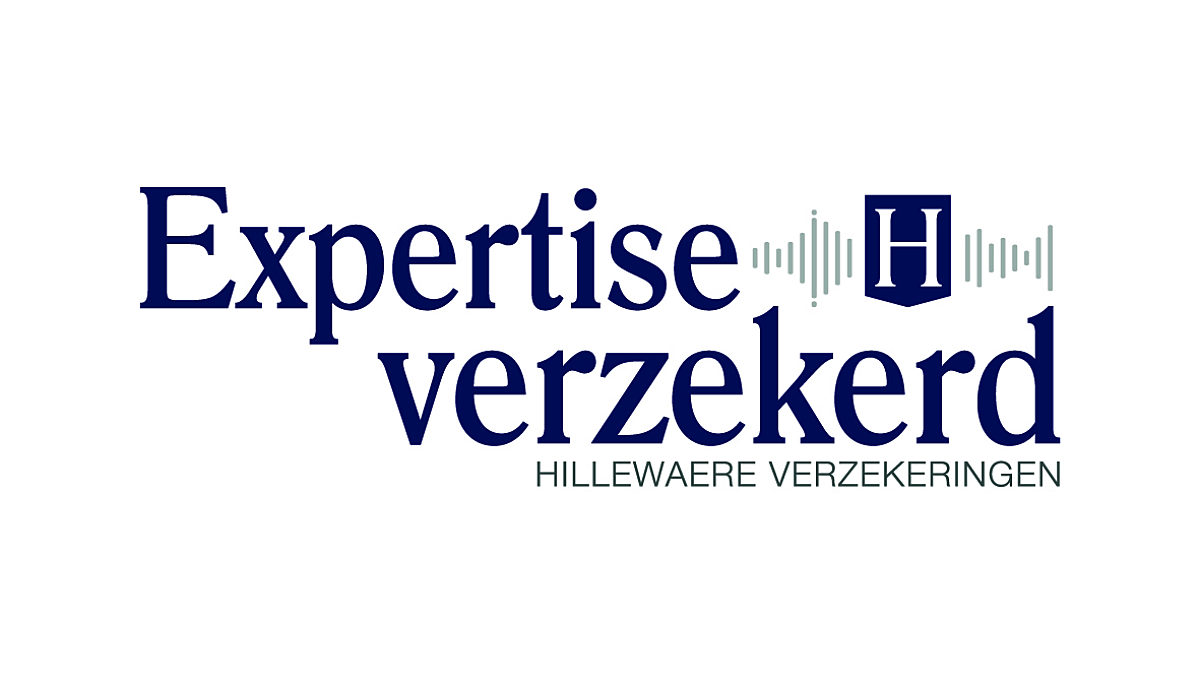
EXPERTISE GUARANTEED: Employee Benefits and your company's duty of care

“Since the coronavirus crisis, employees have been looking at their ‘intangible’ fringe benefits differently. What’s more, the benefits that employees in our country enjoy (or are entitled to) are still relatively unknown and, in many cases, are not being utilised to their full potential.”
Employee benefits, better known as fringe benefits, are experiencing explosive growth. Given the duty of care that employers have towards their employees, it is important to keep pace with this trend. According to our experts, not all benefits are being fully utilised and, too often, the benefits offered are not fully tailored to employees' needs. On the one hand, there are “tangible” fringe benefits such as a company car, meal vouchers, etc. and on the other hand, there are “intangible” benefits such as group insurance or medical expense coverage. In this dossier, we would therefore like to take you through the most common intangible fringe benefits, which can also yield surprising returns in the longer term.
"Employees are increasingly paying attention to the extra benefits a company offers them and to the values and standards of a company when considering whether to join or stay with it. In today's “war on talent”, employers therefore have every interest in providing the right benefits that often benefit both parties. For example, a company can use employee benefits to highlight certain corporate values. Today, hospitalisation and group insurance are among the top five fringe benefits chosen by Belgians."

The importance of employee benefits
Offering these benefits is in the interests of both the employer and the employee. Specifically, this refers to all benefits that an employer offers to the employee that are not included in the traditional salary.
In addition to a competitive salary, employees benefit greatly from having a number of additional benefits in their remuneration package, because ultimately this leads to lower private expenditure in their daily lives and, in the long term, it is important to look forward to a comfortable retirement. And that's not all: what if an employee becomes seriously ill and loses part of their salary?
All these matters can be covered in our country by good insurance policies taken out by the employer for its employees. We are thinking here of the employer's “duty of care” towards its employees. To what extent does an employer provide a good safety net for its employees? Experts note that these issues are receiving increasing attention – from the employees' side – in wage negotiations, so it is in a company's best interests to provide good solutions in this area.
Moreover, there have been many positive developments in recent years, both from insurance companies and brokers. These are systems that are being developed to support HR departments, but also to facilitate access to these plans. What is also often unknown is that every SME now has access to these plans, which are no longer reserved for larger companies.
The group insurance
Group insurance can include various guarantees:
- The accrual of a supplementary pension.
- The option to insure additional death benefits.
- A guaranteed income that provides a replacement income in the event of illness and/or accident.
- The premium waiver guarantee.
Group insurance should enable you to maintain your standard of living in the event of retirement, illness, accident or death.
Group insurance often focuses on retirement. In our country, every person who is active in the labour market is entitled to a statutory pension, also known as the first pension pillar. In addition, it depends largely on the employer whether and what type of supplementary pension the employee will have. The latter is also referred to as the second pension pillar. In other words, good group insurance helps to guarantee a comfortable retirement, both financially and otherwise.
"For example, the higher the salary, the greater the difference between the net salary and the statutory pension. This is due to the wage ceiling that limits the statutory pension for higher wages. It is therefore in your best interest to ensure that your employee has a supplementary pension when they retire, so that they can maintain the same lifestyle and continue to cover certain costs. This brings us back to the “duty of care” that is so important."
A recent survey by Assuralia shows that 54 percent of employees surveyed trust that the government will provide a sufficiently high statutory pension. These figures demonstrate that there is a great deal of uncertainty and that it is therefore in a company's best interests to build up a favourable supplementary pension for its loyal employees and to be able to demonstrate this to job applicants in order to attract new talent in the “war on talent”. No less than 80 per cent of employees believe that it is also the employer's responsibility to contribute to this, and 76 per cent see this as an important factor in wage negotiations.
“More and more young people are seriously questioning the statutory pension system. The situation of the Belgian government and the fact that Belgium has not built up any savings buffers for statutory pensions is causing concern among many young people. As a result, in recent years they have attached great importance to supplementary pension provision through their employer.”
In the past, a distinction was often made between manual workers and white-collar workers in a company. For example, the pension plans (for a supplementary pension) for manual workers and white-collar workers were not the same. However, since 2015, efforts have been made to gradually abolish these differences. In concrete terms, new pension plans (introduced on 1 January 2015) may no longer make any distinction and companies with both workers and employees must, in principle, have the same pension plan.
However, the provisions for death and guaranteed income are often very affordable in terms of cost and, in the event of long-term illness or death, extremely useful for the employee or their surviving dependants. If, for example, the group insurance also includes death cover, the beneficiaries receive the amount of the death cover if the employee dies before retirement. Very often, this is a multiple of the annual income, taking into account the family situation. But it can also offer considerable financial protection while the employee is alive. For example, you can choose to save more for a supplementary pension or insure a higher death benefit.
Guaranteed income
Recent figures show that no other country has as many people on long-term sick leave as Belgium. Yet only 18% of employees currently enjoy this benefit, even though more and more employers want to include this guarantee in their group insurance policies for welfare reasons. It is therefore useful to examine this issue in more detail in this dossier.
What are the main benefits of a guaranteed income?
- Compensation for loss of income in the event of incapacity for work.
- Provision for the continued accrual of pension rights and/or death cover through guaranteed premium waiver.
- The new policies also focus on mental well-being.
More than half a million Belgians are currently on long-term sick leave for a variety of reasons: cancer, rehabilitation after an accident, burnout, etc. Guaranteed income provides a safety net. In concrete terms, employers make a conscious decision to guarantee replacement income for every employee so that they do not suffer financial ruin if they are unable to work due to an accident or illness. In our country, employees fall back on social security after one month of illness. In other words, employees receive their full salary during the first month of absence.
‘What happens next depends largely on the system provided by the employer. Not every employee has supplementary income (through work).’
There are many different policies on the market that vary in terms of waiting period, type of cover, percentage of cover, age limit, etc. It is therefore advisable to seek assistance from an insurance broker.
"The employer may take out insurance to ensure that employees who are absent from work for a long period due to illness or accident receive additional income on top of the benefits paid by the health insurance fund. After one year, the incapacity for work is converted into disability and the employee receives benefits according to their family situation: 65% for someone with one income and dependents, 55% for a single person and 40% for a family or cohabiting couple with two incomes. Thanks to this type of insurance, employees often receive an amount that is close to their net salary."
The guaranteed income is also an extra-legal benefit that does not disappear like many other extra-legal benefits. Think, for example, of the company car that has to be returned or the meal vouchers that are not paid when you are not at work.
"In the past, these kinds of things were almost exclusively reserved for large companies. But that is no longer the case, and that's a good thing. Thanks to new tools and product optimisations, SMEs can also offer this to their employees. However, we have noticed that many of these companies are unaware of this. Raising awareness is therefore really important. We sometimes see scenarios where an employee is unable to work for six months or a year. In such cases, this additional income is really important.”
Medical expenses
Another important aspect is the medical expenses covered by the employer. According to experts, this is something that employees consider very important. Whereas the focus used to be more on financial recovery, prevention (such as dental care and outpatient costs) and support services (such as home help and reintegration into the labour market) are becoming increasingly important aspects of a good package.
Hospitalisation insurance protects employees, and often their family members too, against medical expenses before, during and after hospitalisation and in the event of serious illness. In addition, there is also increasing attention to outpatient medical expenses, with more generous reimbursement of medical expenses throughout the year, regardless of hospitalisation.
Furthermore, a very important advantage of this type of policy through work – compared to individual policies – is that acceptance is without medical formalities.
“This will lead to a significant increase in plans for outpatient costs and, for example, dental care coverage. These are things that are less easy for individuals to take out on their own.”
“Corona has given the importance of medical expense coverage a huge boost. Everyone is much more aware of the potential impact of (long-term) illness, medical expenses, psychological distress, etc. Employers have every interest in fully committing to this, based on their duty of care.”
Given the market's need for these products, an evolution is also visible here. Current technologies make file management easier. For example, there are more and more digital tools that make it easier to keep track of everything. This saves both the HR department and the employee headaches and time.
“When choosing good medical coverage, there are a number of parameters that need to be taken into account. A good insurance broker can assist you with this.”
Business Travel
Another important insurance policy – which, according to experts, is still too often overlooked – is travel insurance through work. After all, caring for employees who represent the company goes beyond mere “traditional” medical assistance. What if an employee has to go on a business trip and something happens?
‘We often see that people who travel the most for work have this type of insurance. But what if an extra employee suddenly has to travel or there is a job change and another employee has to go abroad? That's when problems arise if something happens, because not all incidents are covered by the “work accident” policy.’
This goes beyond the most logical things such as an accident or a strike affecting the means of transport you are travelling with. Very often, these policies also cover things such as an interpreter who is needed to assist you if something serious happens. What's more, there are policies that are fairly easy to take out and therefore cover not only the company's “frequent flyers” but also “occasional travellers”. In fact, family members of business owners can often benefit from this insurance too. Finally, the conditions of cover apply not only to larger companies but also to SMEs.
Awareness raising and guidance
According to experts, everything starts with good guidance and awareness raising.
‘As insurance brokers, we know the products available on the market inside out, and it is up to us to guide employers and employees and find the right solution depending on the needs of the company and the profiles they are looking for,’ they say. ‘What's more, we live in a world of change, and HR departments often can't see the wood for the trees when it comes to sector plans and business plans. Just look at the uniformity for blue-collar and white-collar workers, for example. There are major differences between the various providers on the market, and it's up to us to provide the employer, or the HR department in many cases, with the right solutions.’
According to experts, there is no standard formula or ready-made solution. There are so many factors – such as the sector, whether or not the work is manual, high-risk occupations, age, number of employees, region, etc. – that play a role in setting rates. In addition, most employees know that they receive “something” in terms of benefits, but are not familiar with the details or the policies. Employers, for their part, are often happy to offer fringe benefits, but do not go out of their way to find the most suitable formula.
“If the company is open to offering attractive fringe benefits to its employees, often in consultation with the Board of Directors, it is up to the HR department to look into these matters and sit down with the insurance brokers. Together, we can put together the right package for the company or the HR department.”
In addition to the well-being of employees, which is paramount, employee benefits also have a financial aspect. There is nothing wrong with a company looking at which fringe benefits reduce wage costs. For example, hospitalisation insurance is not tax-deductible but is exempt from social security contributions, and group insurance is deductible as operating costs.
Succession is just as important
According to experts, succession is just as important as taking out the right insurance policies.
"It is extremely important to regularly review the insurance policies offered within a company – the intangible fringe benefits – and to seek assistance from an insurance broker. There is so much turnover in companies and, moreover, we are developing more and better tools all the time, that you need to look at these innovations and revise your plans where necessary."
In addition, laws often change. Take the Verwilghen Act, for example, which was amended in 2007 but still has a major impact today. The Verwilghen Act imposes specific rules on the individual continuation of hospitalisation insurance when an employee leaves the company. Depending on the policy, the employer can continue the existing cover without any additional medical formalities.
However, trends also change over the years. For example, in addition to physical complaints, there is now much more attention for psychological complaints.
“Older policies provide little or no provision in this regard. In newer plans, this is already more integrated because the market recognises the problem and is addressing it.”
Whereas in the past, psychological complaints were dealt with purely through financial intervention, various insurance companies are now increasingly focusing on prevention and active support to help people return to work.
"Whether this means that the employee returns to work at the same company or chooses a different path should not really affect your desire to support these people and offer them a solution as an employer."
In addition, guidance ensures that employees find the right path more easily, which is also cost-efficient for the company.
Here too, according to the experts, it is very important that employers are aware of the most recent policies, but it is also important to inform employees about any changes.
‘Very often, people don't realise that these benefits are also “gifts” you are giving your employees. As a company, and particularly as an HR department, it is in your best interest to highlight this. It is our job as a broker to help HR staff tell this story to all employees or even do it for them.’
As a specialist insurance broker, we have developed digital tools to make it easier for both employers and employees to track their files. The role of the broker remains crucial and must be able to provide advice and assistance. So make sure you get good advice and contact your insurance broker in good time if you have any questions or uncertainties.
Did you know
- Today, hospitalisation and group insurance are among the top five fringe benefits enjoyed by Belgians.
- On 1 January 2022, around four million employees had a supplementary pension.
- One third of the active working population is not affiliated to a pension plan.
- The percentage of contributions to supplementary pensions varies greatly depending on the sector. Employers play an important role in supplementing sector plans.
- The government's ambition is for every employee to see their supplementary pension capital grow by 3% each year. However, studies show that 3% is not enough.
- Employees pay an average of around 20% of their medical expenses (such as medicines, doctor's visits, consultations with specialists, etc.) themselves.
- In some cases, once a certain amount has been reached in the group insurance, this can be used as a personal contribution towards the purchase of a home.
- When an employee leaves, every employer must indicate that they can take out their own hospitalisation insurance. Condition: two years of service.
- No other country has as many long-term sick people as Belgium.
Would you like more information about our solutions?
Please fill in the contact form below. Based on this information, we will examine your request as your advisory partner. We will contact you shortly to discuss your request further.
Related articles


Arbeidsmarkthervormingen 2026: nieuwe regels voor re-integratie.
De aangekondigde arbeidsmarkthervormingen brengen belangrijke veranderingen met zich mee. Vanaf 2026 worden werkgevers verplicht om actief mee te werken aan de re-integratie van langdurig zieke medewerkers. Wie niet tijdig handelt, riskeert boetes die kunnen oplopen tot duizenden euro’s per werknemer.

